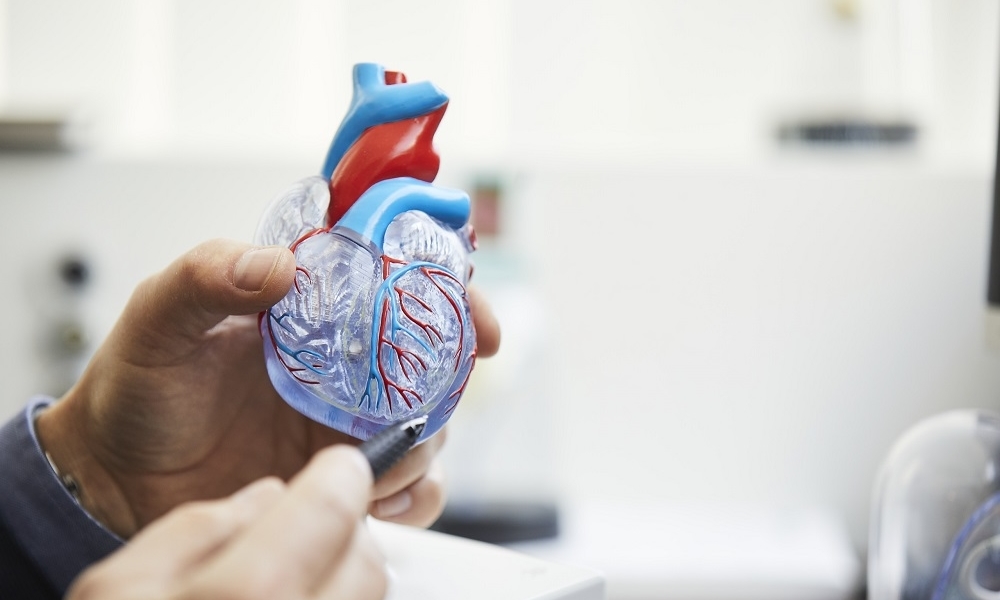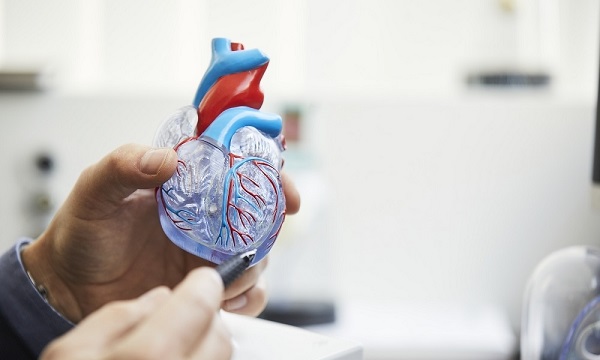Corrigan Minehan Heart Center
Hypertrophic Cardiomyopathy Program


Contact Us
Hypertrophic Cardiomyopathy Program
Corrigan Minehan Heart Center
55 Fruit Street
Boston,
MA
02114
Phone: 866-644-8910
Explore This Treatment Program
Overview
The Hypertrophic Cardiomyopathy Program at the Massachusetts General Hospital Corrigan Minehan Heart Center offers patients multidisciplinary evaluation by experts in cardiomyopathy, cardiac imaging, cardiac genetics, arrhythmias, exercise cardiology, interventional cardiology and cardiac surgery. These clinicians work together to provide comprehensive diagnosis and treatment of hypertrophic cardiomyopathy (HCM), a heart disease characterized by abnormal thickening of the heart muscle of the left ventricle, the heart chamber that pumps blood to the body.
Conditions We Treat
Some patients with HCM have obstruction to blood flow out of the left ventricle. We treat patients with both the obstructive and nonobstructive forms of the condition. We can distinguish HCM from other conditions that may mimic the disease. These include heart muscle thickening due to high blood pressure, athlete’s heart and amyloid heart disease.
What We Offer
Our comprehensive, multidisciplinary services include:
- Initial evaluation with personal and family history, physical exam, electrocardiogram (ECG), echocardiography and arrhythmia monitoring
- In many cases, further cardiac imaging with MRI by experts in cardiac imaging
- Management of HCM symptoms with medications and, as needed, alcohol septal ablation or septal myectomy by operators with expertise and extensive experience with these procedures
- Assessment for risk of serious, potentially life-threatening arrhythmias, with placement of implantable cardioverter defibrillators (ICDs) when appropriate
- Advice regarding safe levels of exercise, with referral, as appropriate, to our Cardiovascular Performance Program, which has expertise in advising patients with HCM
- Genetic testing and advice for and screening of family members by certified genetic counselors and physicians in our Cardiovascular Genetics Program
- Referral to specialists in our Telemachus & Irene Demoulas Family Foundation Center for Cardiac Arrhythmias with expertise in HCM
- Management of pregnancy in collaboration with our physicians in our Cardiovascular Disease and Pregnancy Service
- Access to promising investigational medications for HCM
Evaluation
After initial examination, HCM physicians led by Michael A. Fifer, MD and Albree Tower‑Rader, MD may recommend further testing through any of the following procedures:
- Echocardiography
- Holter, Zio Patch, or other monitoring of the heart rhythm
- Exercise stress testing
- Cardiac magnetic resonance imaging (MRI)
- Cardiac computed tomography (CT)
The Mass General Hospital Cardiac Ultrasound and Radiology departments use state-of-the-art equipment for their diagnostic studies, which are interpreted by Danita Sanborn, MD, Brian Ghoshhajra, MD, and other experts in the evaluation of HCM.
A Comprehensive Treatment Plan
Our approach to patient care is tailored to each patient, since the treatment for hypertrophic cardiomyopathy depends on the severity of symptoms and the results of testing. There is a varied spectrum of symptoms, ranging from none to those which impair quality of life, and the presence and severity of symptoms may change over time. Physicians at the Corrigan Minehan Heart Center offer a number of medications and procedures to favorably affect symptoms and the course of the disease:
- For some patients who have hypertrophic cardiomyopathy, but do not have cardiac symptoms, no treatment is necessary
- For patients with symptoms, the first line of treatment is medical therapy with beta blockers or calcium channel blockers. For others, second line medications including disopyramide or mavacamten may be offered. We also have access, through research protocols, to promising new drug treatments for HCM
For patients with obstructive HCM who have symptoms that cannot be controlled with medical therapy, we have extensive experience and expertise in alcohol septal ablation and surgical septal myectomy.
Alcohol Septal Ablation
Alcohol septal ablation is a minimally invasive procedure used to treat some patients who have obstructive HCM. Michael A. Fifer, MD and his team at Mass General have been pioneers in the performance of septal ablation, refining the procedure since it was first performed here in 1998.
Alcohol septal ablation is designed to remove a small amount of thickened heart muscle that blocks the flow of blood out of the heart. Dr. Fifer and colleague Rahul Sakhuja, MD, inject alcohol through a catheter they thread up the radial or femoral artery through the aorta into the tiny branch of the coronary arteries that feeds the critically located segment of heart muscle.
Surgical Treatment of HCM
Surgical septal myectomy is performed by a team led by Thoralf M. Sundt, MD. By cutting away the thickened interventricular septum that is causing the blockage, surgeons can relieve the obstructive component of HCM. While it is an open heart surgical procedure, it can be done, in experienced hands, safely and with excellent long-term results. Like many surgical procedures, experience matters, and it is important that the surgeons performing the procedures do them frequently. In addition, at Mass General Hospital, we use advanced technologies including three-dimensional printing to plan these procedures. Postoperative care is coordinated by cardiac surgical and cardiology team experienced in the care of HCM patients.
Arrhythmias in HCM
Patients with hypertrophic cardiomyopathy may have arrhythmias such as atrial fibrillation, atrial flutter or ventricular tachycardia. A small percentage of patients with hypertrophic cardiomyopathy may have an increased risk for sudden death. There are a number of risk factors which have been associated with increased risk for sudden death, and we assess for the presence of these risk factors for each patient at every encounter. Patients identified to be at increased risk for sudden death may be candidates for placement of an implantable cardioverter defibrillator (ICD) for prevention. The Hypertrophic Cardiomyopathy Program includes arrhythmia specialists, such as Theofanie Mela, MD, with expertise in HCM who are available for personalized consultation on medications, ICD, or pacemaker placement and other procedures to treat arrhythmias.
Family Counseling and Screening
Hypertrophic cardiomyopathy is, in many cases, an inherited genetic disease. Children, siblings and parents of patients with hypertrophic cardiomyopathy may undergo screening with ECGs and echocardiograms to determine whether they also have hypertrophic cardiomyopathy. Genetic testing with a saliva test is also available. The Hypertrophic Cardiomyopathy Program offers certified genetic counselors and physicians with expertise in cardiac genetics for counseling families of patients with this condition.
Innovative Research
Hypertrophic cardiomyopathy experts collaborate to make treatment recommendations based on leading clinical cardiovascular research. Our patients have the opportunity to participate in clinical trials, including those for several promising new treatments for hypertrophic cardiomyopathy. These research efforts influence the medical community, and our physicians often publish their results in distinguished academic journals.
Meet Our Team
Program co-directors Michael A. Fifer, MD, a cardiologist with extensive experience in the evaluation and management of HCM, and Thoraf M. Sundt, MD, a surgeon with extensive experience in performing septal myectomy and related procedures, lead a multidisciplinary team of clinical specialists to manage the care of HCM patients. Our physicians in the Hypertrophic Cardiomyopathy Program have treated over 1,600 patients with HCM.
-
![]()
- Director, Hypertrophic Cardiomyopathy Program
-
![]()
- Chief, Division of Cardiac Surgery
- Director, Corrigan Minehan Heart Center
- Co-director, Hypertrophic Cardiomyopathy Program
-
![]()
- Associate Program Director, Cardiovascular Imaging Fellowship (Noninvasive)
-
![]()
- Surgical Director, Adult Congenital Heart Disease
- Quality Director, MGB Cardiac Surgery
- Assistant Professor of Surgery, Harvard Medical School
-
![]()
- Associate Professor of Radiology, Harvard Medical School
- Academic Director, Cardiovascular Imaging
-
![]()
- Director, Lead Management Program
-
![]()
- Co-Director of the MGH PAD Program
-
![]()
- Associate Chief of Cardiology for Clinical Operations and Strategy
- Assistant Professor of Medicine, Havard Medical School Physician, MGH
Patient Resources
Mass General is dedicated to ensuring that people understand their health care choices and have the necessary information to make decisions affecting their health and wellbeing. The related support and wellness information listed below can play a role in treatment options.
Patient Guide to Cardiac Surgery
What to expect before, during and after your surgery at the Corrigan Minehan Heart Center.
Guide to Catheterization Procedures
A guide of what to expect and how to prepare for your procedure.
FAQs: Cardiac Anesthesia
A guide of what to expect before, during and after cardiac anesthesia.
Mass General Brigham Heart and Vascular Institute
With Mass General Brigham, patients gain access to a world-class system of specialized heart and vascular experts.
Telehealth at Mass General
Virtual visits allow you to conveniently meet with your provider from home—either online (over your computer or device) or by phone.
Second Opinions
Our physicians welcome second opinion appointments to review cases and proposed lines of treatment.
Contact the Corrigan Minehan Heart Center
Call us to learn more, or request an appointment online.








